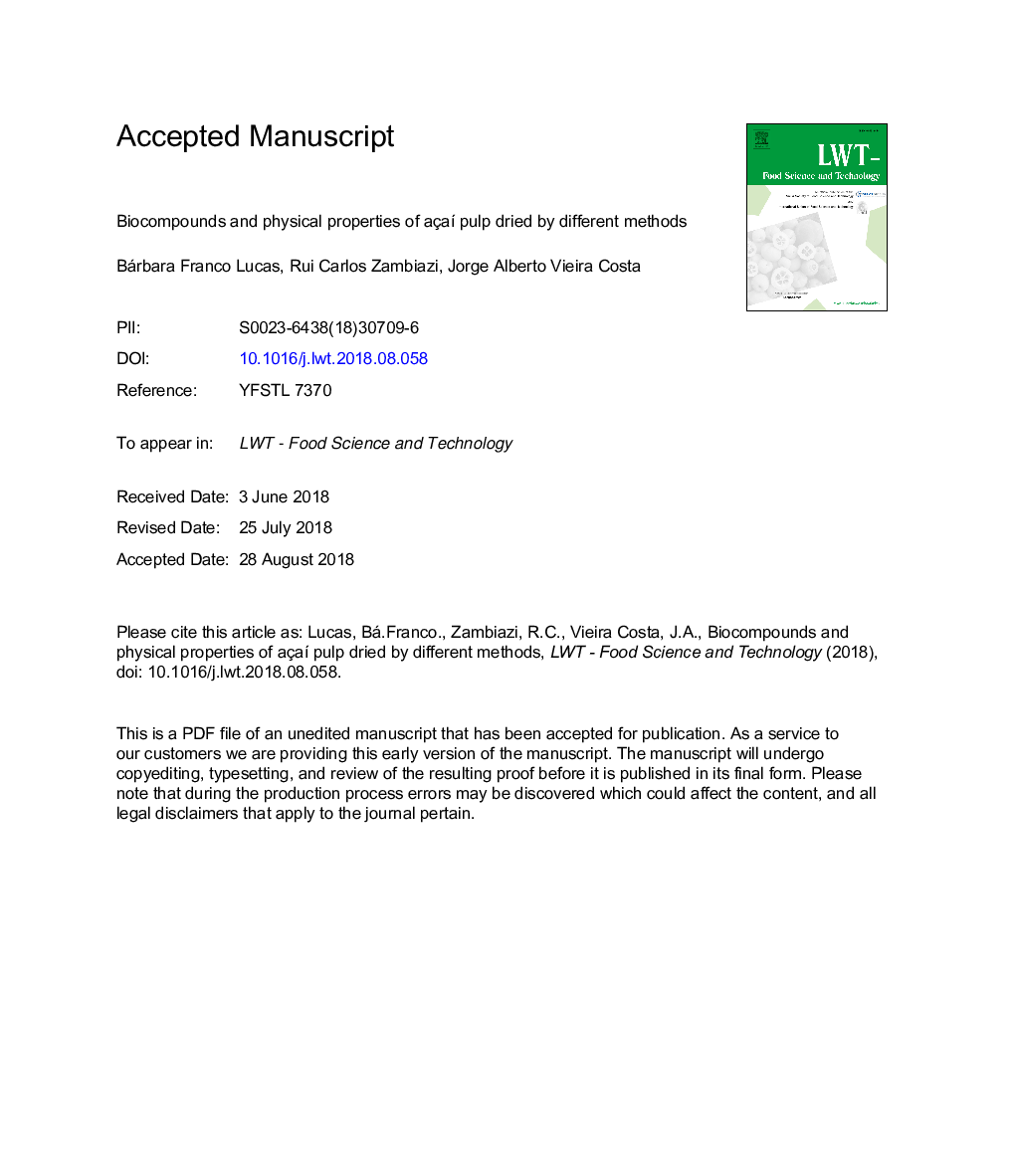| Article ID | Journal | Published Year | Pages | File Type |
|---|---|---|---|---|
| 10130423 | LWT - Food Science and Technology | 2018 | 29 Pages |
Abstract
The aim of the study was to evaluate the biocompounds content and physical characteristics of açaà pulp dried by different methods in order to determine the most suitable drying method. The açaà pulp with a high content of lipids (53.31â¯g/100â¯g) was dried using spouted bed, freeze dryer and spray dryer. The samples were evaluated for anthocyanins, carotenoids and moisture content, and also for color and microstructure parameters. All samples showed moisture content less than 5â¯g/100â¯g. Powders obtained by freeze dryer and spouted bed showed lower color difference than fresh pulp. Microstructure analysis exhibited particles with irregular surfaces and diameters less than 100â¯Î¼m. The açaà pulp dried by freeze drying presented the best results under the conditions and methods evaluated, once it resulted in a product with higher contents of anthocyanins (5.87â¯Â±â¯0.53â¯mg/g of dry matter) and carotenoids (38.28â¯Â±â¯0.69â¯Î¼g/g of dry matter), as well as lower moisture content (2.65â¯Â±â¯0.11â¯g/100â¯g). Furthermore, no lipid oxidation occurred in the freeze-drying pulp. Therefore, we concluded that açaà pulp can be dried and still preserve high concentration of biocompounds, and also physical properties, being suitable to be applied in healthy foods.
Related Topics
Life Sciences
Agricultural and Biological Sciences
Food Science
Authors
Bárbara Franco Lucas, Rui Carlos Zambiazi, Jorge Alberto Vieira Costa,
